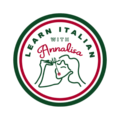Asking “How Are You?” in Italian
Asking “How are you?” is an essential conversation starter and an excellent way to connect with people, especially when traveling or interacting with native speakers of another language. In this article, we will explore seven different ways to say “How are you?” in Italian, complete with pronunciation tips and usage guidelines. By mastering these expressions, you’ll be able to communicate more effectively with Italians and build stronger connections.
Table of Contents
“How are you?” in Italian: Come stai? (Informal) and Come sta? (Formal)
“Come stai?” (pronounced coh-meh stai) is the most common way to ask “How are you?” in Italian. You can use it when speaking to someone you know well or in an informal setting. Use this phrase when talking to friends, family, or acquaintances you feel comfortable with. In formal situations or when speaking to someone older or of higher status, use “Come sta?” (pronounced coh-meh stah) to show respect and politeness. This expression is the formal version of “Come stai?” and is appropriate when talking to strangers, professionals, or authority figures.
Come va? (General)
“Come va?” (pronounced coh-meh vah) is another way to ask “How are you?” in Italian. This expression is more general and can be used in both formal and informal situations. It translates to “How is it going?” and can be a good option if you’re unsure whether to use the informal or formal version.
Tutto bene? (Casual)
For a more casual and friendly approach, try asking “Tutto bene?” (pronounced toot-toh beh-neh), which translates to “Everything good?” or “All good?”. This phrase is suitable for informal conversations and can be used with friends or acquaintances to create a relaxed atmosphere.
Come ti senti? (Inquiring About Health or Feelings)
When you want to inquire about someone’s health or feelings, use “Come ti senti?” (pronounced coh-meh tee sen-tee) in informal settings. Or “Come si sente?” (pronounced coh-meh see sen-teh) in formal situations. These expressions translate to “How do you feel?” and are appropriate when asking about someone’s well-being after an illness, a difficult situation, or when you notice that they may be feeling down.
Che si dice? (Italian Slang)
“Che si dice?” (pronounced keh see dee-cheh) is an informal and slang expression used among friends or acquaintances. It translates to “What’s up?” or “What’s new?” in English. This phrase is best suited for casual conversations and can help create a relaxed and friendly atmosphere.
Come butta? (Italian Slang for “How Are You?”)
Another slang way to ask “How are you?” in Italian is “Come butta?” (pronounced coh-meh boot-tah). This expression is also quite informal and translates to “How’s it going?” or “How’s life?”. Use this phrase when chatting with friends or acquaintances in a laid-back setting.
Usage and Pronunciation Tips to say “How are you?” in Italian
When asking “How are you?” in Italian, it’s essential to choose the right expression based on the context and your relationship with the person you’re speaking to. Pay attention to the pronunciation of each phrase, especially the rolled “r” and the stress on the syllables.
To respond to any of these questions, you can say “Sto bene” (I’m fine) or “Non c’è male” (Not bad). If you want to return the question, simply add:
- “E tu?” (And you?) for informal situations or;
- “E Lei?” (And you?) for formal ones
Cultural Etiquette and Manners When Greeting in Italy
In Italy, as in many other cultures, greeting someone properly is an important part of social etiquette. It’s about more than just the words you use. Body language, tone of voice, and the formality of your expression all play a role. When asking “How are you?” in Italian, remember to maintain eye contact as a sign of respect. Also, be prepared for a warm, enthusiastic greeting, as Italians are known for their expressive communication style. It’s also common to kiss both cheeks when meeting friends and family, although this is less common in professional or formal settings.
Learning how to say “How are you?” in Italian is an essential skill for anyone looking to communicate effectively with Italians and immerse themselves in the culture. Do you want to learn more? Check out Italian Crash Course.

